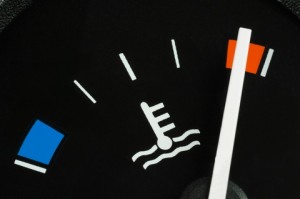Posted on 2/10/2022
How often should I have my brake fluid serviced? Depending on your vehicle and the manufacturer's recommended intervals, there tends to be a wide range of recommendations for the best time to service your brake fluid. How often you change your brake fluid depends on your driving amount and braking patterns. It is always helpful to have your mechanic check your brake fluid each oil change. These frequent checks will allow you to keep tabs on the brake fluid levels and receive feedback from your trusted mechanic on when to service your brake fluid. It is typical to see a need to change the brake fluid every 2-5 years or every 30,000 miles. At Sallas Auto Repair, we check all fluid levels with each oil change and give the recommendations needed, so you don't run into any "surprises" on the road. Why do I pick a brake fluid exchange over a regular brake service? When driving, brakes are one of the most critical components o ... read more
Posted on 9/2/2014
I know this topic sounds pretty basic, but as I have been doing a little research I see there is room for a little education in this department! 1. Don’t Top Off Your Gas Tank – When the gas pump clicks off automatically – DON”T TOP IT OFF! Gas pumps are designed to click off when your gas tank is full enough. Two things can happen if you “top off”. First gasoline needs room to expand. If you put too much gas in and then it expands it has to go somewhere! It can go into your vehicle’s vapor collection system. This may foul the system and cause it to malfunction because it is designed for vapor not liquid. Second if your tank can’t hold anymore it will go in the gas pump recovery system and then you just paid for a little gas you didn’t get. 2. Purchase In The Coolest Part Of The Day – In the morning or evening it is usually cooler. Gas become denser in cooler temperatures and gas pumps measure by volume. It is also b ... read more
Posted on 9/2/2014

You may not be thinking of your car overheating as the weather begins to cool but that doesn’t mean it couldn’t happen. Taking steps to understand what can cause it and what to do about it can prevent a real hassle just when you need it least. Most people think thermostat first when they hear overheated engine. And that can be the cause but not always. Other causes of overheating: Leaky head gasket Cooling system leaks Faulty fan Leaky water pump Slipping belt Lower radiator collapse Plugged or dirty radiator Dragging brakes Overworking the engine What to do if your car does overheat: If you’re stuck in traffic turn your heater up full blast to help move heat away from your engine. Find a safe place to park on the side of the road. Turn off the engine. Open the hood. If you can approach the engine check the coolant level at the reservoir. Do not open the radiator cap, it’s unde ... read more